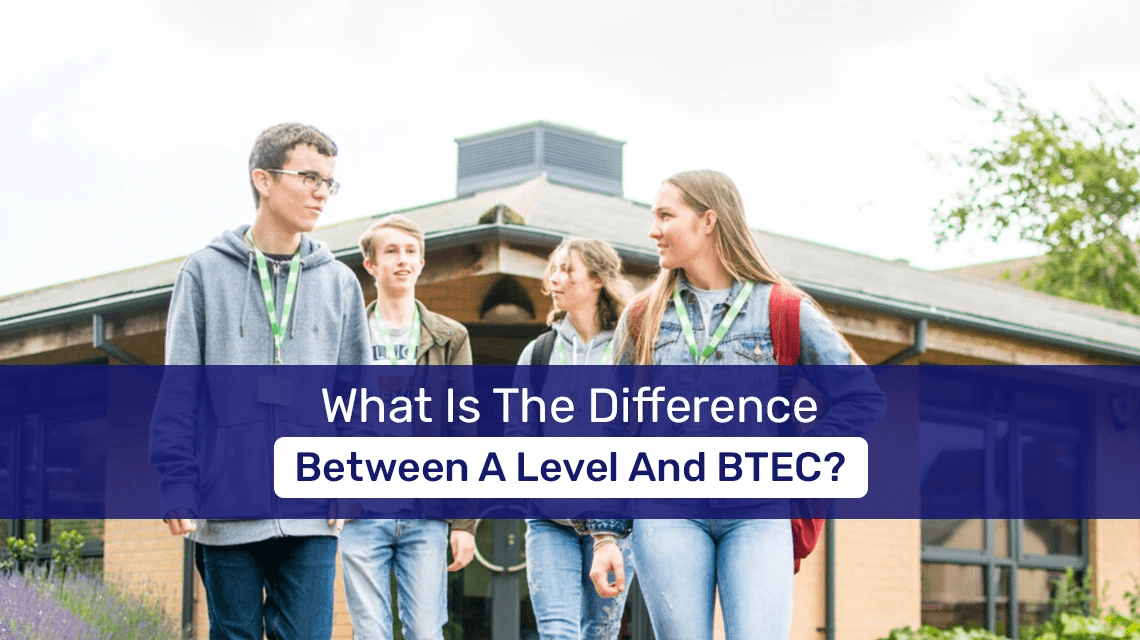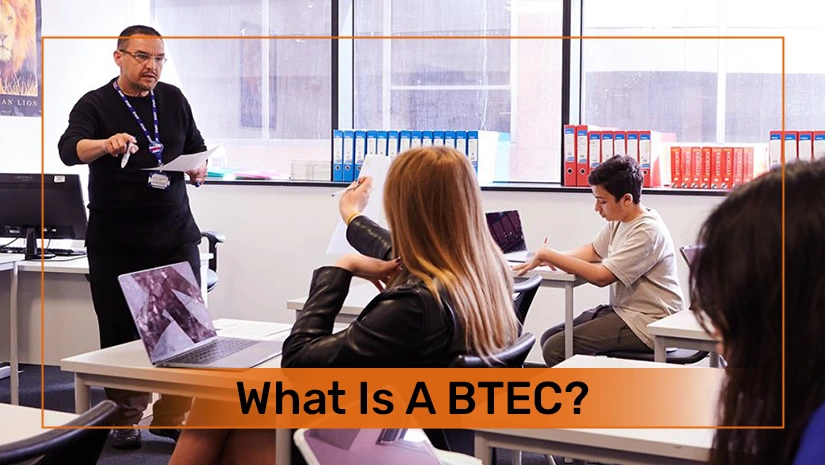
If you are considering furthering your education and are looking into qualifications, you may have come across the terms 'A Level' and 'BTEC.’ While both are qualifications and are often taken as part of a college or university course, you should be aware of what is the difference between A Level and BTEC.
Both these qualifications are post-secondary education, leading to employment and higher studies. This article will explore the differences between A Level and BTEC qualifications, helping you choose which one is right for you. So, let’s get right in.
A Level is a traditional post-secondary education system based in England but is now taught worldwide. These are academic qualifications that are taken over two years in the UK. They are typically designed to prepare students for higher education, such as a university.
It is offered in various subject areas, including science, humanities, languages, mathematics, business, and creative arts. They are typically studied at a sixth-form college or school and are the traditional route to higher education.
Generally, universities prefer A Level qualifications, as they are seen as a sign of academic rigour. A Levels are assessed through examinations and coursework, and results are graded on a scale of A to E.

Business and Technology Education Council, or BTEC, is a vocational qualification introduced in 1980 as an alternative to A Level. BTEC is more practical than A Level and is assessed through coursework, assignments, and practical tasks.
It is a vocational education and training organization that offers a range of qualifications, including BTEC National and BTEC Higher National qualifications, which are designed to equip students with the skills, knowledge, and understanding needed for a successful career in the business and technology sectors.
What level is a BTEC? Well, there’re various levels of BTECs that are equivalent to other qualifications. Let’s see what is a BTEC equivalent to:
|
Levels |
Equivalent To |
|
Levels 1 & 2 |
GCSE |
|
Level 3 BTEC |
A Level |
|
Levels 4 to 7 |
University Degree |
A BTEC Subsidiary Diploma is equivalent to 1 A Level, a BTEC is equivalent to 2 A Levels, and an Extended BTEC Diploma is equivalent to 3 A Levels. So you can do either A Level or BTEC, as well as a combination of BTEC and A Level.
Must Read:
The difference between BTEC and A Level is clear. Let's check out some significant differences between these two qualifications:
The main difference between A Level and BTEC is how these qualifications are taught. A Levels are more of a traditional learning outcome heavily dependent on theoretical learning. On the other hand, BTEC is a vocational qualification emphasizing practical and hands-on learning.
The difference lies in assessment as well. In A Levels, students are assessed through coursework and examinations. However, in the case of BTEC, students are evaluated through practical tasks, coursework, and assignments.
A BTEC will be a better option for students who want to get a job right after high school. It prepares students better for a particular job and task. In contrast, if students want to get admission into universities, A Level will be a better option as universities and colleges prefer it.

After completing secondary education in high school, it becomes difficult for many students to choose between these two qualifications. But here’s what you need to consider while choosing one between them:
Some students choose a combination of A-Level and BTEC, which can be a smart option for you.
Several reasons make BTEC more appealing to students compared to A-Levels. Those are the causes you should choose BTEC. Let’s explore the reasons:
BTECs are taught practically. There are more practical tasks and assignments than exams and theoretical learning. So, you will have hands-on experience with topics.
You can start working right after completing a Level 3 Extended BTEC Diploma. Plus, this qualification prepares you well for performing your task in the workplace.
95% of universities in the UK accept BTEC students. So, your chances of higher study in universities and colleges are wide open even after completing BTEC.
BTEC courses are taught online. Educational platforms like London DMS conduct high-quality BTEC courses where you can study from home.

BTECs are vocational qualifications focused on particular skill sets and jobs. On the other hand, A-Levels are a more classroom-based academic education system. Universities generally prefer A-level students.
Yes, a BTEC is equivalent to 2 A-Levels. But a Subsidiary BTEC is equivalent to 1 A-Level, and an Extended BTEC is equivalent to 3 A-Levels.
Many students take a combination of A-Level and BTEC. You can take either 2 A-Levels and 1 BTEC or 2 BTEC and 1 A-Levels to ensure the three qualifications most universities ask for.
Most universities in the UK accept BTEC students as it’s equivalent to A-Levels. They can apply to and study at around 95% of universities in the UK.
Now that you know, what is the difference between A Level and BTEC, it will be easier for you to make a decision. Best of all, you can study BTEC online from your home. London DMS offers BTEC courses that you can enrol in and earn your qualification from a respectable place.

July 13 2024

February 23 2024

February 25 2024

February 25 2024

 Dr. Shafiq
Dr. Shafiq
 February 25 2024
February 25 2024
 05:40:00
05:40:00
Do you have a career plan in a Senior Care or Supervisory Care position? If so, a Level 3 Diploma will help...
Read more...
 Dr. Shafiq
Dr. Shafiq
 February 25 2024
February 25 2024
 05:43:00
05:43:00
If you are living in the UK or planning to do that, you must know about the education system there. The UK&...
Read more...
 Dr. Shafiq
Dr. Shafiq
 February 25 2024
February 25 2024
 05:50:00
05:50:00
In the recent past, you had to have a four-year bachelor’s degree to start a career. With the rapid c...
Read more...